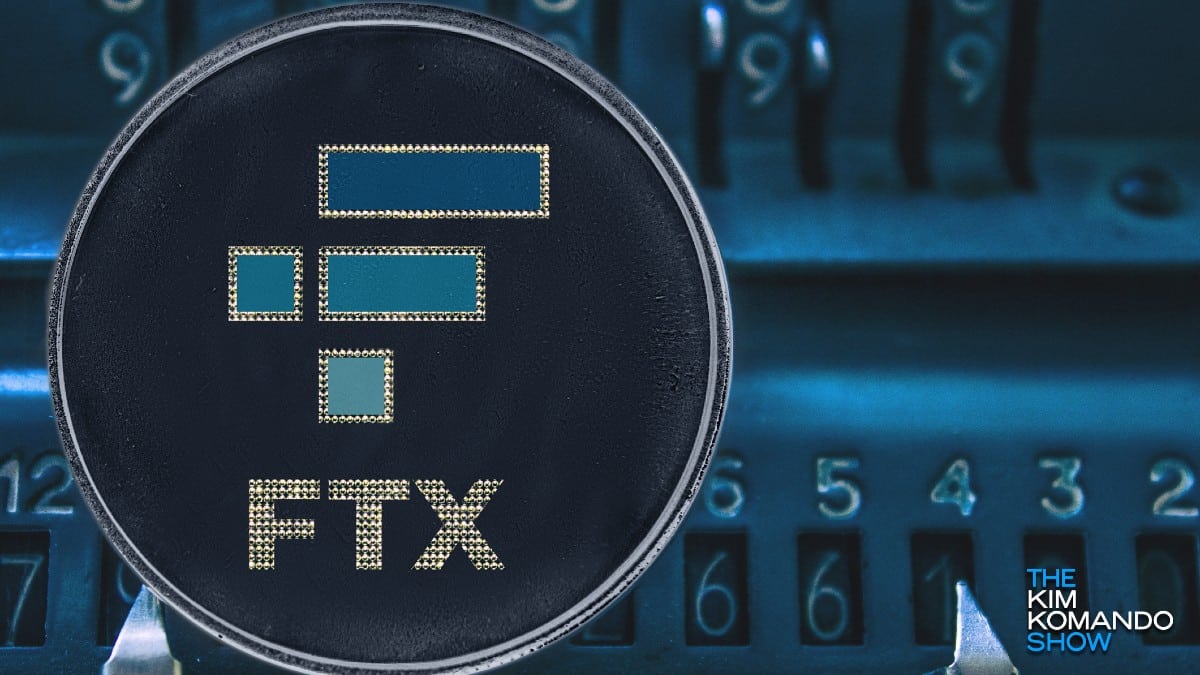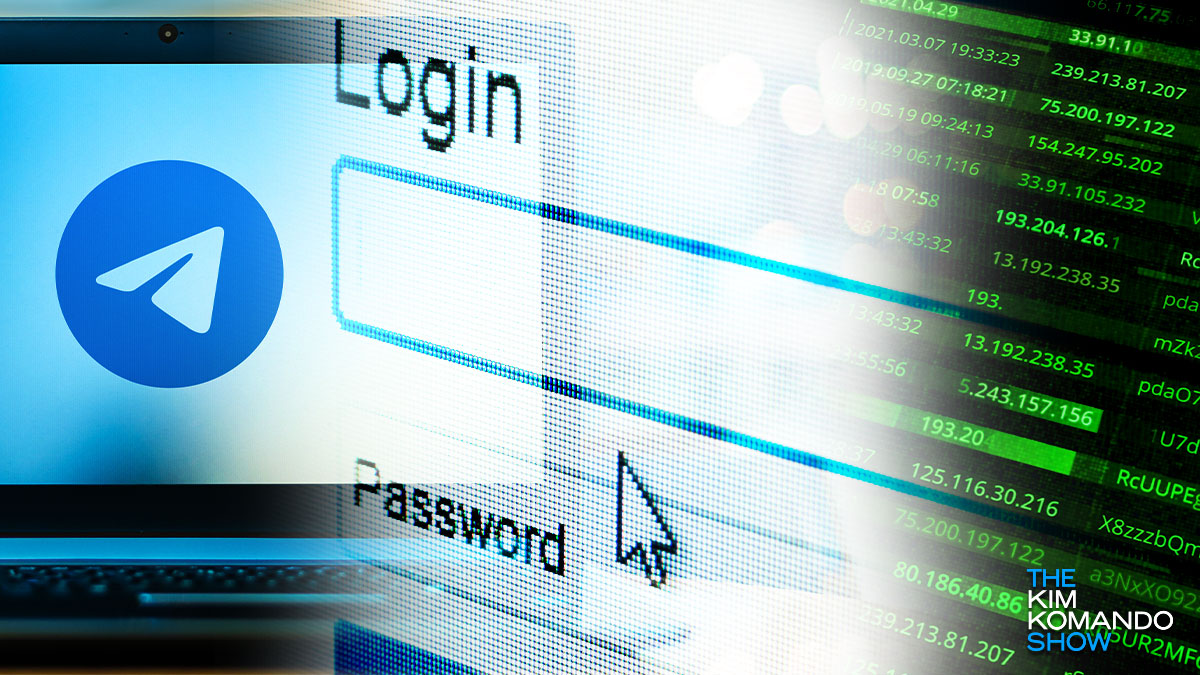Warning: Check your computer for software that puts you at risk

Criminals are finding clever new ways to infect not only your smartphone with malware but also your PC. Tap or click here for steps to removing malware from your computer.
It’s not always malicious apps in third-party app stores causing the problems. Some legit apps become risky over time. After deep diving into more than 30,000 open-source repositories, cybersecurity experts at Veracode have come to a few startling conclusions.
Keep reading to find out what the team found in its 2023 State of Software Security Report.
Here’s the backstory
Software maven Veracode published a collection of security findings after analyzing some of the industry’s best and brightest. This includes many regarded as some of the safest programs available to the public.
After crunching the numbers, the firm determined that even relatively modern software may develop dangerous security flaws as months and years pass.
Veracode describes a honeymoon phase at the beginning of an application’s life. After the first sweep for bugs and other issues, the app’s reliability becomes very stable before the age of the application begins to show.
After this honeymoon period, a lot tends to happen. Companies are disbanded, teams of developers change or leave entirely, and new technology overtakes the foundation upon which the original application was built.
As these factors compound, older applications may be as much as 27% more likely to become dangerously unsafe. The longer software is around, the greater chance it has to become corrupt.
When it’s time to say goodbye
On average, Veracode’s honeymoon period lasts from the first significant scan to around 18 months after the debugged app was released. They deliver this warning with one big piece of advice: to scan all your apps at least once a month to see if they have become corrupt.
While many of the tactics described in the report appear to be geared more toward the engineers building the apps themselves, it’s still worth considering, even if you’re an average consumer.
Online banking checkup: 3 must-do steps to protect your login

Criminals are around every corner online, trying to steal your credentials and rip you off. From phishing emails to spoofed websites to malicious apps, there is much to worry about.
If someone gets their hands on enough of your personal information, they can steal your identity and ruin your credit. Tap or click here for signs that someone has opened a bank account in your name.
New antivirus scam email spreading — Don't click!

You don’t expect antivirus software to spread malware, but it happens. Tap or click here for how this malware can eavesdrop on your calls using your phone’s motion sensors.
Phishing scams are also far too common. Maybe you get a receipt for AV software you never bought, or a marketing email that looks legitimate buts leads you to a bogus page ready to take your credit card info.
This phone scam fooled someone out of thousands of dollars

There are many ways for scammers to get their hands on your information and money. Text messages with malicious links are common, and some criminals use QR codes to harvest your data.
Others take a bit of a more hands-on approach, opting to call victims. These scammers can be persuasive, and it can be challenging to determine whether they are legitimate.
Delete this productivity app NOW

Like millions of other Americans, you probably made a few resolutions entering the new year. If you want to start 2023 right, include better cybersecurity on your to-do list.
Start by deleting these five redundant apps from your smartphone. That’s just the beginning. A productivity app that made its way to an official app store was recently caught hiding malware. It’s designed to steal banking credentials to rip you off. If you have it on your device, remove it ASAP!
This tricky scam campaign goes after those who lost money in crypto

Cryptocurrency has always been a risky investment. Even though Bitcoin skyrocketed and made some investors millionaires, it’s difficult to predict when or why the crypto market will slide. Not only that, but the FBI warns that hackers have been targeting crypto platforms. Tap or click here for our report.
The top 10 most impersonated brands online - Read this to steer clear of phishing

Phishing scams have been around for years, but the thieves behind them constantly change techniques. Earlier this year, phishing scams targeted your bank accounts. Tap or click here for details on these dangerous financial scams.
Convincing bank text scam could cost you thousands

Online banking is convenient and safe as long as you take some precautions. While it’s nice to avoid standing in long lines waiting for a teller, there’s always the chance for hackers and scammers to get involved. Tap or click here for three online banking mistakes putting your money at risk.
Security tip: 5 reasons you need to replace your router now

Your router is responsible for sending Wi-Fi signals to your phone, laptop, smart TV, security cameras and more. This makes you especially vulnerable if your router is hacked. Yes, that can happen.
Chinese threat actors are going after routers, telephone networks and online storage and using their combined power to target critical and military targets, steal login credentials and hijack banking information. Tap or click here to secure your home network.
Bank data breach exposes 1.5 million Social Security numbers

Things like your social media accounts are precious to cybercriminals. Some are even more sought after than banking details. Tap or click here for how much your stolen credit card is worth on the Dark Web. But the last thing you want to hear is that your bank account or Social Security number has been breached.
Work in one of these 10 fields? Scammers are targeting you

Scammers often have preferred targets. Whether a susceptible senior or someone who left their account exposed, they usually have the tools to rip them off.
But it’s not always about age or how tech-savvy you are. Sometimes working in a specific industry could put a target on your back.
Your stolen information is on the Dark Web - What to do next

The Dark Web keeps internet activity private and anonymous. Dark Web content isn’t indexed by search engines, and you need special software to access it. You can imagine the applications for this, such as avoiding government censorship and keeping one’s identity private.
Check your phone - These prayer and mental health apps fail to protect your data

Think about all the apps on your phone, and how many of them contain potentially sensitive information. You might have social media accounts, banking details and health records.
You might think apps like that would take your personal information seriously – especially when the subject matter can be sensitive. We all know by now that’s definitely not always the case, and plenty of apps have been known to expose user data. And here we go again.
Scam Alert: Fake ‘energy auditor’ could show up at your front door

Most people want to do their part in reducing the effects of energy consumption on the environment. While many recycle their trash or try to reuse everyday items, there is a growing movement among the environmentally conscious of using renewable energy.
Windows malware can steal social media credentials, banking logins and more

Many pieces of personal information are valuable to hackers and scammers. Your Social Security number can spell lots of trouble in the wrong hands. Your credit card and banking information is highly sought after, too, as criminals can drain your account in seconds.
Check your phone - Antivirus apps caught spreading banking malware

When it comes to smartphone apps, proceed at your own risk. When you decide to download an app, even if it’s from a trusted source, you could be exposing your data, privacy and even financial information without knowing it.
This is how much your stolen credit card is worth on the Dark Web

Scammers are not picky about what they steal from you. Whether your social media logins or banking details, they can sell them on the Dark Web for a tidy profit.
But while social media details can be easy for thieves to scrape, it turns out that credit card information is relatively straightforward to come by. Moreover, credit card cloning and theft are so rampant that there are 1.6 million card numbers for sale on the Dark Web.
Norton renewal email scam: Keep an eye out for this phony invoice

Many software companies adopted a Software as a Service (SaaS) business model about a decade ago. Instead of making a one-time purchase for a program, it is sold at a monthly cost. The best example of this is when Microsoft changed the model for Office. Tap or click here for free alternatives to Microsoft Word.
Devious new malware steals your money, then wipes your phone

Malware has been around for years. While variants come in different levels of severity, they are extremely dangerous when targeting your smartphone.
Unlike Apple’s closed ecosystem, anybody can make an app for Android with few checks and balances. Unfortunately, it also leaves Android users vulnerable to malware, as hackers can easily bury malicious code in an application.
If you connected your bank account to Venmo, Robinhood or another financial app, you may be entitled to a settlement

App users are often blissfully unaware of just how much technology is involved in making an application work correctly. For every function, there are heaps of coding. Want to know more? This hands-on training can help.
